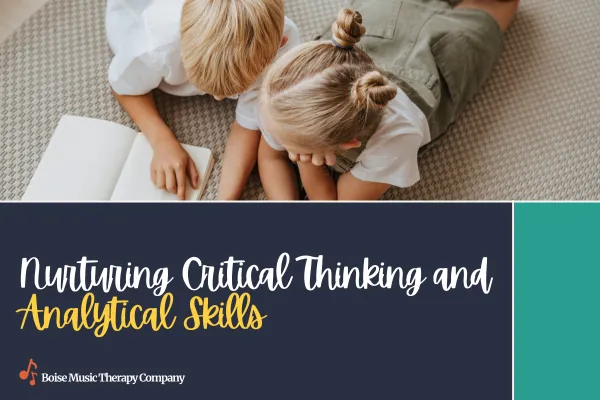
Nurturing Critical Thinking and Analytical Skills

Children possess unique perspectives and strengths that can be harnessed and developed to excel in various aspects of life, including critical thinking and analytical skills. These skills are crucial for problem-solving, decision-making, and academic success. In this blog post, we'll explore effective strategies tailored to kids, helping them unleash their full potential.
Understanding Different Perspectives
All children have their own set of strengths and challenges, making it essential to employ diverse strategies to nurture their critical thinking abilities. What works for one child may not work for another child.
Play-Based Learning
For kids, play is a powerful tool for learning. Engage them in activities that stimulate their imagination, problem-solving, and decision-making skills. Building with blocks, puzzles, and interactive games can help foster logical thinking and spatial awareness.
Visual Aids and Mind Maps
Visual aids and mind maps are excellent tools for enhancing critical thinking and analytical skills. Create colorful diagrams or flowcharts to help children visually organize their thoughts, ideas, and concepts. This approach can be particularly beneficial for those who are visually inclined.
Encourage Curiosity
Foster a sense of curiosity and wonder by encouraging questions and exploration. Provide opportunities for hands-on experiences, such as nature walks, science experiments, or visits to museums. This helps stimulate cognitive development and strengthens problem-solving abilities.
Tailored Educational Tools
Utilize educational tools and resources designed for diverse learners. There are a plethora of apps, games, and adaptive technologies available that cater to different learning styles. Tools like text-to-speech software, graphic organizers, and interactive simulations can greatly support critical thinking development.
Embrace Individual Interests
Every child has unique interests and passions. Tailor learning experiences to align with these interests. Whether it's dinosaurs, space, or art, integrating their favorite subjects into educational activities can enhance their motivation to think critically and analyze information. My son dislikes writing. He refuses to write most of the time unless I ask him to write about dinosaurs. Then he will write multiple books about them!
Foster a Growth Mindset
Encourage a growth mindset by emphasizing that abilities can be developed through dedication and hard work. Praise effort and perseverance, and celebrate small victories along the way. This mindset promotes resilience and a willingness to tackle challenges head-on.
Practice Active Listening and Empathy
Developing critical thinking skills also involves understanding different perspectives. Practice active listening and teach empathy to help children consider various viewpoints. Engage in conversations that encourage them to think critically about complex issues.
Cultivate a Supportive Environment
Create a nurturing and inclusive environment that acknowledges the strengths of children. Celebrate their achievements, no matter how small, and provide a safe space for them to express themselves. A supportive community can significantly boost their confidence and willingness to engage in critical thinking.
Nurturing critical thinking and analytical skills in children is a rewarding journey that requires patience, creativity, and adaptability. By employing these tailored strategies, you can empower them to thrive academically and in their personal lives. Remember, every small step forward is a significant achievement.
